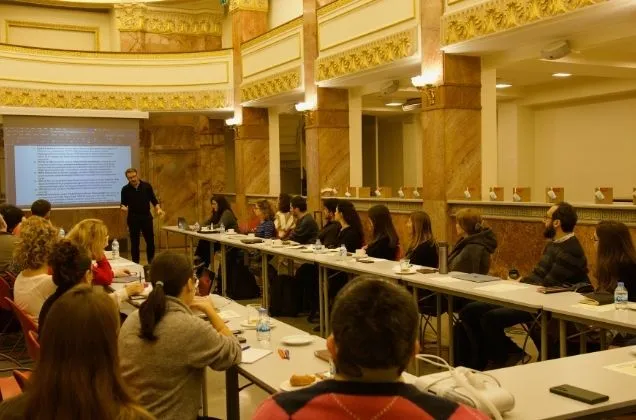20/12/2024
Sabancı University held the 2nd Sustainability Transformation Meeting on December 18th with the theme of “How Can We Achieve Integrated Sustainability?”.
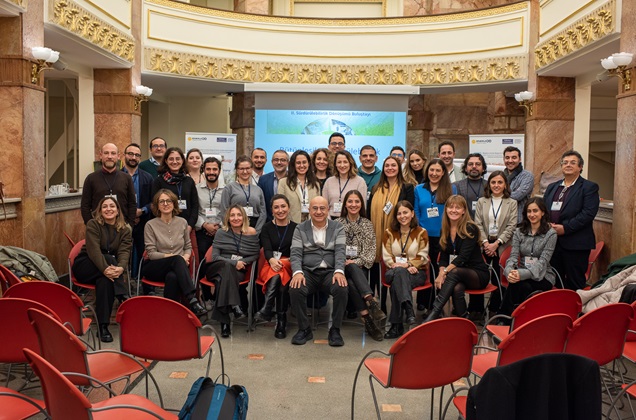
The meeting, organized by the Sabancı University ARAMA Initiative, addressed how sustainability approaches in companies can be developed in a more holistic way that encompasses the entire system. Hosted by Sabancı University Arama Initiative Chair Prof. Dr. Oğuz Babüroğlu, the meeting brought together experts, practitioners, and academics from various disciplines and focused on a model that includes all stakeholders and to which everyone can contribute, rather than a fragmented approach. Enerjisa Head of Sustainability and Corporate Capabilities Ebru Taşcıoğlu and Sabancı Business School Member Dr. Ozan Duygulu participated in the event as speakers.
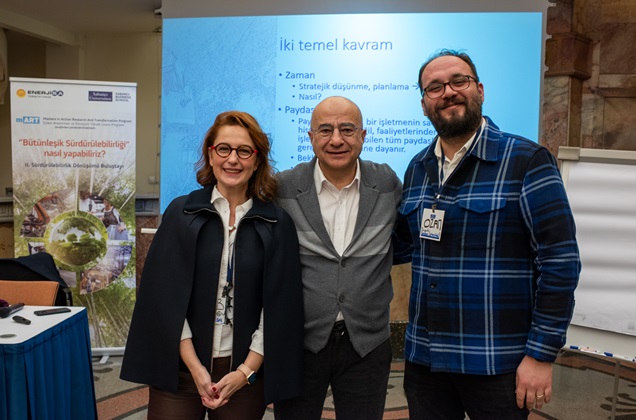
“The basis of sustainability movements is togetherness”
In his speech at the opening of the meeting, Sabancı University Arama Initiative Chair Prof. Dr. Oğuz Babüroğlu drew attention to the fact that the basis of sustainability movements is togetherness. Babüroğlu said, “We need a collaboration where global connections and networks come together. We should start acting together and develop projects in this area. Supporting is a part of the philosophy of sustainability. Ensuring the continuity of sustainable movements is also a kind of social experiment. The integration of universities is of great importance in this process because institutionalization and processing of information ensure the permanence of sustainability.”
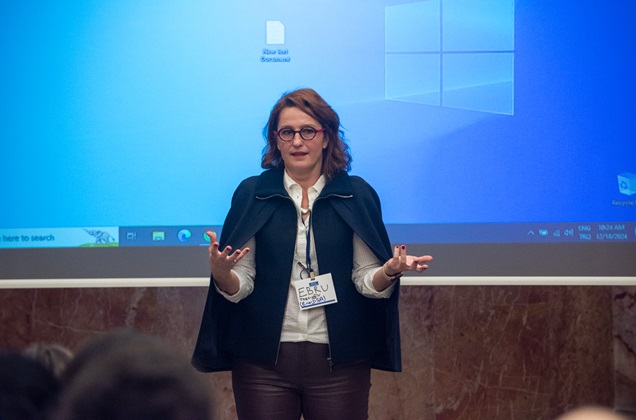
“Sustainability actually means transformation”
Ebru Taşcıoğlu, Enerjisa Head of Sustainability and Corporate Capabilities, shared Enerjisa’s transformation processes and strategies in the field of sustainability. Taşcıoğlu said the following: “Sustainability actually means transformation. Certain capabilities are required for sustainable transformation. The work done in this field in the departments of companies such as human resources, information technology, and finance should come together. A business plan needs to be formed within the strategy. Culture and communication activities require the approach of leaders for strategy and culture. Important steps are being taken in Turkey regarding sustainability. Companies can make these efforts collective.”
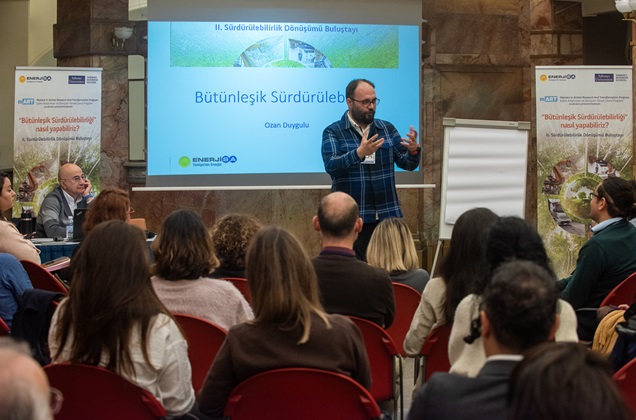
“It is not possible to achieve sustainability without integration”
Sabancı Business School Member Dr. Ozan Duygulu shared important information on leadership, corporate culture, and innovative approaches to sustainability. Duygulu said, “It is not possible to achieve sustainability without integration. All decisions made in a company inevitably have an impact on society. It is necessary to be aware of this impact and act in an integrated manner. When you act with this awareness and foresee what will happen in the future, you become integrated. However, when you act without integration, an unsustainable structure emerges. Instead of the mindset of ‘If I don’t do it, someone else will do it’, it is important to take action by taking responsibility. In order to understand how our actions affect society, we must analyze the context correctly and take steps with this awareness.”
Sustainability achievements and challenges
In the group studies conducted at the event, it was stated that some of the steps taken in sustainability were integrated into the strategic goals of the companies and provided tangible gains. It was said that reducing the carbon footprint, increasing the financial contributions of renewable energy, and spreading equal opportunity projects were among the prominent achievements in this field, and that companies making sustainability goals a part of their strategies facilitated access to financing and provided better responses to customer expectations. The prominent items in the studies were as follows:
- Regulations and incentive mechanisms were among the important external factors supporting sustainability efforts.
- Despite the successes achieved in the field of sustainability, it was stated that various challenges continue.
- Lack of diversity, especially inadequacies in guiding female employees and increasing female employment, stand out as a significant problem.
- Lack of long-term planning makes it difficult to fully integrate sustainability goals into business models.
- Lack of communication within organizations causes the issue of sustainability to be addressed inconsistently across different departments.
- Economic barriers also pose a significant challenge.
- The high costs of environmentally friendly products and sustainable production processes limit companies' investments in this area.
A common platform for transformation and social awareness
The meeting proposed the establishment of a Common Platform to facilitate holistic sustainability transformation. The Common Platform was designed to make sustainability efforts more effective, strengthen cooperation among stakeholders, and produce concrete solutions for sectoral needs. It was stated that this platform, which will have a digital infrastructure, will bring together companies, public institutions, civil society organizations, and academia to facilitate sustainability efforts. The following outputs were also obtained on the subject:
- One of the main goals of the platform is to ensure that sustainability goals are integrated into company strategies and to provide a digital reporting system to monitor these goals. At the same time, awareness activities supported by gamification and interactive training modules will increase the knowledge and competencies of individuals and institutions in this area.
- Regular webinars, workshops, and forums will be held to encourage the sharing of experiences between stakeholders. In addition, the platform will provide guidance on regulations and incentive mechanisms, facilitating companies to benefit from support in areas such as renewable energy and circular economy projects.
- The Common Platform will also provide a framework for the implementation of concrete projects. It will support the financing of initiatives such as carbon footprint reduction and renewable energy and facilitate access to national and international grant resources. The progress of the projects will be monitored, sectoral comparisons will be made and successful practices will be shared thanks to the digital dashboard.
- Another proposed project is the Circular Economy for Children Project, which aims to instill sustainability awareness in the youngest members of society. Clothing, toy, and book exchange programs will be organized in kindergartens to encourage a culture of sharing and reduce resource consumption. With the participation of local governments, families, and children, this project will be a concrete step that will increase social awareness about sustainability.

